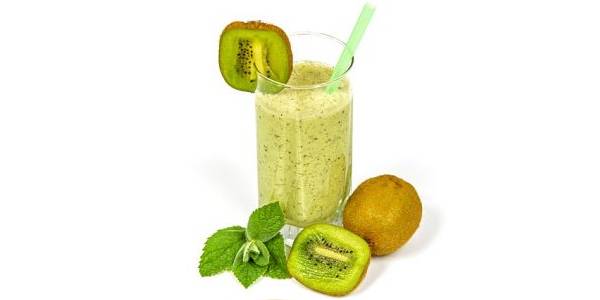Protein shakes are very popular among athletes.
If you’re going to the gym, you’ve probably heard guys at the gym talk about protein shakes. Protein powder, shaken with milk or water as a cocktail or used in food recipes – is becoming increasingly popular as a dietary supplement.
You can buy protein powder at any sports supplement store or just online. Many of these stores even have pre-mixed, ready-to-eat protein shakes. But is protein powder only for bodybuilders, or will those who exercise easily every day benefit from it?
What is protein powder?
Protein powders come in a variety of forms. The three most common of these are whey, soy and casein proteins. Whey protein is most commonly used because it is a water-soluble milk protein. It is a fully composed protein, making it superior to others (whey protein contains all nine amino acids needed for human nutrition). People who are vegan can use soy protein. These proteins may not taste very pleasant and they are insoluble in water.
Protein powder prices can vary greatly from manufacturer to manufacturer. For an ordinary athlete who does not have a specific goal during training, the price is not so important. So if you are going to use them, you can get almost the same benefits from cheaper and more marketable proteins.
In specific circumstances, protein powder may be helpful.
It is an easily available and convenient source of high quality protein.
But remember: most people, even athletes, can get everything that protein meadows provide by eating lean protein sources like meat, fish, chicken, and dairy products.
Protein shakes
So when could you use them? There are several reasons why an ordinary athlete wants to have more protein in their diet:
When you grow up. A young person needs more protein to be able to train as his body grows and uses more protein in general.
When you start a workout program. If you start training and are trying to build muscle, you will need more protein than usual.
When you strengthen your workouts. If you usually work half an hour, several times a week, but now decide to train for a half marathon, your body will need more protein.
When you recover from an injury. Athletes with sports injuries often need more protein to help them recover.
If you are vegan. People seeking a vegan or vegetarian lifestyle eliminate many sources of protein from their diet, including meat, chicken and fish, and sometimes milk and eggs.
All of these are good reasons to try to get more protein in your diet. Protein powder, protein shakes are one way to do this.
But there is a caveat. It is not necessary to consume large amounts of such protein to achieve these goals. Most people already get about 15% of their daily calories with the help of protein. Muscle building requires 3-4 extra grams of protein per kilogram per day. Protein shakes are great for that.
It’s definitely not that much. Some of these powders contain 80 grams of protein per serving. You don’t need that. Your body tries to break down all the excess into energy. It also puts too much protein on your kidneys and liver.
Protein calculator
So, can you answer whether you are already using enough protein? Let’s calculate.
The following daily recommendations are obtained from the American College of Sports Medicine and the Academy of Nutrition and Dietetics:
The average adult needs 0.8 grams of protein per kilogram of body weight per day.
Those involved in athletics need 1.1 to 1.4 grams of protein per kilogram of body weight.
Athletes needing between 1.2 and 1.4 grams, and those taking part in high-endurance competitions may need up to 2.0 grams per kilogram of weight.
Athletes who build muscle mass need 1.5-2.0 grams per kilogram of weight per day.
let’s say you’re an adult athlete who wants to build muscle mass and you weigh about 75 pounds. The maximum amount of protein needed per day is 150 grams. That sounds like a lot. But one 110-gram burger has 30 grams of protein, 170 grams of tuna has 40 grams, and 30 grams of cheddar cheese has 7 grams of protein.
Note for teen athletes
Protein is also important for young athletes. The average teenager needs 0.9 to 1.1 grams of protein per kilogram of body weight each day. Teen athletes need more – from 1.1 to 1.8 grams per kilogram of weight per day.
However, we warn teenagers taking protein supplements. Too much protein can overload the kidneys. It can also contribute to dehydration. To avoid these dangers, make sure your teen eats protein from a high-protein diet on a daily basis.
Protein shakes. How to Use Protein Powder |
If you calculate the amount of protein you need and find that you are not using enough to achieve your sports goals (some signs of low protein: you are unusually tired, feel weak when you are lifting weights or doing hard work, or recovering slowly from an injury). How can you best use protein powder to help improve your body?
Pirma, nekreipkite dėmesio į tai, kai sakoma, kad reikia naudoti baltymų miltelius iškart po treniruotės. Prieš, per ir po treniruotės angliavandeniai yra tai, ko reikia jūsų organizmui. Tai yra tai , ką jūsų kūnas naudoja energijai, ir kas veikia jūsų raumenis. Taip, baltymas taip pat svarbus regeneravimuisi po treniruotės Tačiau tyrimai rodo, kad treniruotės metu organizmui reikia energijos, gaunamos iš angliavandenių ir baltymų, kurių santykis yra 4-1 arba 5-1. Kadangi daugelyje baltymų miltelių turi ne mažiau kaip 20 gramų baltymų šaukštelyje, norint gauti tinkamą maistinių medžiagų kiekį, jums reikės maždaug 80 gramų angliavandenių su šiais papildais!
Geriausiam gėrimui po treniruotės rekomenduojame vaisinį kokteilį su jogurtu arba pienu, arba šokoladinį pieną ( siurprizas, ar ne ). Stiklinė šokoladinio pieno yra vienas iš geriausių kokteilių atsigavimui.
Taigi, kada turėtumėte naudoti baltyminius kokteilius, jei nustatėte, kad turite vartoti daugiau baltymų? Bet kada visą dieną kaip užkandį ar maisto pakaitalą, bet ne būtinai betarpiškai prieš , per ar po treniruotės.
Nepamirškite: ” Baltyminiai kokteiliai tikrai nėra būtini, jei turite galimybę naudotis įprasta, sveika mityba”.


